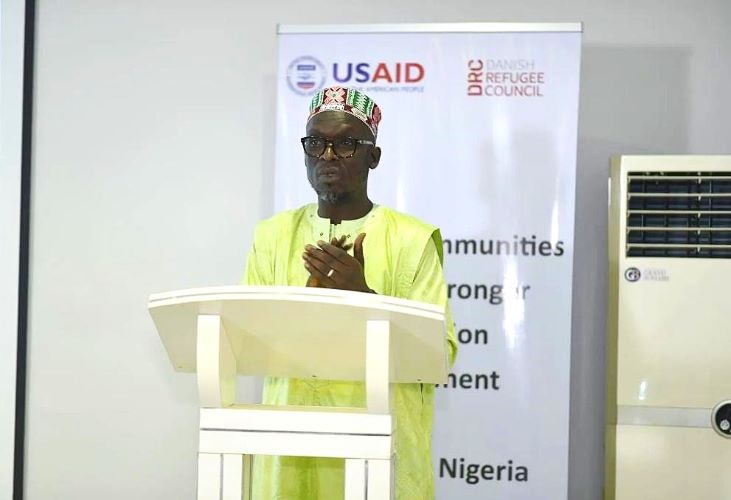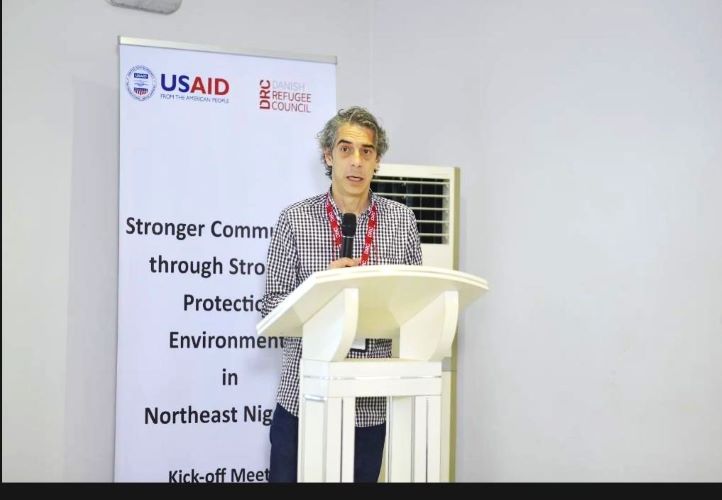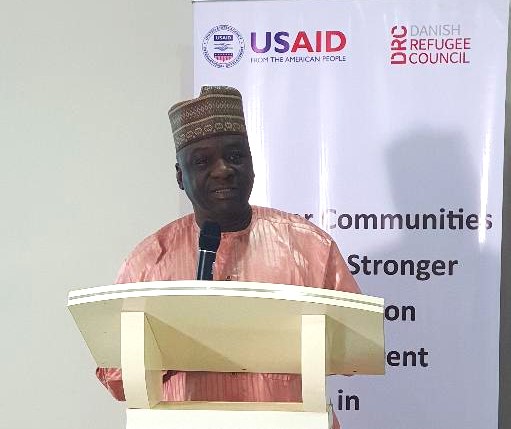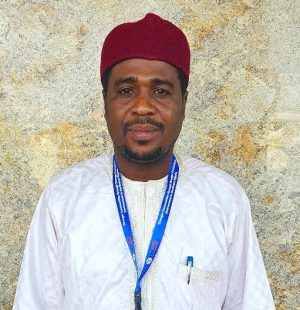A project kickoff workshop for two humanitarian initiatives funded by the United States Agency for International Development (USAID)/Bureau for Humanitarian Aid (BHA) to improve the lives of vulnerable populations in Northeast Nigeria has been held in Abuja.
The projects, Empowering and Nurturing Resilience, Integration, and Community Health (ENRICH) project and the Stronger Communities through Stronger Protection Environment initiative, aim to reduce vulnerability, improve resilience, and foster sustainable solutions for vulnerable populations affected by ongoing conflicts in Borno State.
The ENRICH project is implemented by Action Against Hunger (ACF), while the Stronger Communities project is led by the Danish Refugee Council (DRC).
Core areas of focus include combating malnutrition, enhancing access to health services, improving water, sanitation, and hygiene (WASH), and promoting food security and livelihoods. Protection and psychosocial support are also central to the projects’ objectives.
Commitment to Local Leadership and Resilience
Patrick Robin of USAID emphasised the agency’s commitment to empowering local leaders to address community challenges.
“USAID is launching this joint stakeholders kickoff meeting to formally introduce the project to federal, state, and local government authorities and to establish a shared understanding and collaboration for ownership and success,” he said, urging government representatives to oversee implementation and ensure coordination among stakeholders.
He stressed the importance of delivering humanitarian assistance with dignity and respect for internally displaced persons (IDPs) in the region.
Targeted Impact and Resilience Building
ACF’s Country Director, Thierno Samba Diallo, described the ENRICH project as a resilience-oriented initiative designed to meet immediate needs and foster long-term recovery in four local government areas (LGAs): Gubio, Magumeri, Mobbar, and Kaga.

The project integrates nutrition, health, WASH, food security, and psychosocial support, benefiting nearly one million people over two years.
“According to the cadre harmonisé and the IPC, the integrated humanitarian crisis phase classification, about 33 million Nigerians are projected to face food insecurity and malnutrition next year 2025.
“Among these, the northeast is still one of the biggest slots of those that are really most affected. So Borno is still in that need and Borno has been facing that for the last decade. So it’s not the time to leave them but accompany until peace is recovered in the state,” Diallo said.
Danish Refugee Council Country Director, Victor Manuel Velasco Corrochano, highlighted the magnitude of these interventions, noting their potential to create lasting change amidst immense humanitarian challenges in Borno State. The projects will also target four additional LGAs: Monguno, Konduga, Mafa, and Nganzai.

“We also need to help the authorities in order to address whatever is happening now in the field and how we can join efforts to make the life of the people a little bit better, get maximum benefits in a coordinated fashion,” Corrochano added.
Also Read: USAID Empowers 120 Vulnerable Youths in Borno State
Collaboration and Sustainability
Borno State’s Permanent Secretary for Budget and Planning, Peter Solomon, expressed optimism about the projects’ potential to create significant impacts in local communities, while also acknowledging the necessity of partnerships to fill existing gaps in humanitarian efforts.

“I believe that what they have done and what they are still doing and what they are going to do will make a greater impact,” he said.
Speaking on behalf of the Chairmen of the target Local Governments, Honourable Mali Bulama Gubio, Executive Chairman of Gubio Local Government Area, urged the consortium to involve local leaders in project implementation to better address the specific needs of affected populations.

“ACF had a stabilisation centre, but was burnt by Boko Haram in August 2019 and that stabilisation centre actually helps, in helping out the most needy and malnourished, children in the local government, with their help and support,” he stated.
The projects will collectively target eight local government areas, addressing critical needs such as nutrition for children under five, improved access to primary healthcare, and the provision of clean water and sanitation.
While the ACF would implement the project in Gubio, Magumeri, Mobbar, and Kaga Local Government Areas, the DRC-led consortium will do similar in Monguno, Konduga, Mafa, and Nganzai Local Government Areas of Borno State.
They are expected to benefit over 1.4 million people over two years, with a budget exceeding $55 million.
Addressing Alarming Humanitarian Challenges
With over 33 million Nigerians projected to face food insecurity in 2025, ACF stressed that urgent action is required, particularly in the Northeast, where vulnerabilities are highest.
Stakeholders at the workshop called for localization, accountability, and alignment with Borno State’s 25-year development plan to ensure sustainable impact.

The ENRICH project would also increase access to clean water, hygiene, and sanitation; and provide quality, comprehensive protection services, mental health and psychosocial support that could significantly reduce mortality and morbidity for children and improve the coping capacity of over 714,000 among the most vulnerable conflict-affected populations.
According to the ACF, over 33 million people are projected to be food insecure, and up to 2 million children will face malnutrition in 2025 in the country, with over 60% located in the North, including Borno State.


Comments are closed.